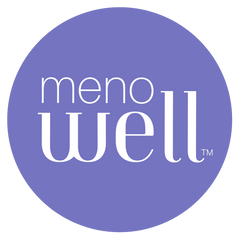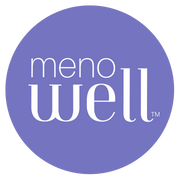A Personal Story of Menopause from Let's Talk Menopause Co-Founder, Christine Maginnis

At the age of thirty-four, I married a good-hearted and smart man. Our future seemed boundless so we wasted no time in trying to start a family. It seemed I was pregnant every month as my periods were late. Failed pregnancy test after failed pregnancy test begged to differ. When I did get a period, my blood flow was abnormally thick and heavy. As the months passed, I grew increasingly lethargic and was rapidly putting on weight. I felt stuck in a fog of muddled, spacey thinking. One day when I arrived home from work, I couldn’t get my house key into the lock and began to cry. Who does this? Worst of all, my libido took a precipitous nosedive. I knew something was seriously off—this was not in my head. I was not myself.
I visited my gynecologist, relayed my symptoms to her, and asked if she could test my thyroid. She seemed vexed, put out even, by this request as I had had blood work done six months prior. I am not making this up, but when I told her of the startling decline in my libido, she put her hand on my arm and said, “Christine. Let me be the one to tell you. The honeymoon does not last forever.” My face stung as if she’d hit me. I had been shamed by my own doctor: unheard and dismissed. I did fight for new blood work, though, and insisted I’d pay out of pocket if need be.
A few days later the doctor herself called to tell me the peculiar results of my bloodwork – my follicle-stimulating hormone (FSH) levels were abnormally high. I was well into menopause, and most likely infertile. At thirty-five.
I was diagnosed with what was then called Premature Ovarian Failure (now called Premature Ovarian Insufficiency). The term applies to the 1% of women who reach menopause before turning forty. While not common, it can even affect teenagers. The cause is unclear—possibly linked to a genetic anomaly, or a response to an undiagnosed autoimmune disease, or due to toxins as a result of chemo and/or radiation treatments. In essence, no one knows for sure. The bottomline was that my egg supply was kaput. Fried, fizzled, depleted. Game over.
Two decades later, my friends Donna Klassen and Samara Daly began talking about creating a nonprofit organization about menopause, and I immediately jumped on board. Together, we created Let’s Talk Menopause, a nonprofit organization invested in changing the conversation around menopause so women get the information they need and the healthcare they deserve. Women going through menopause are often adrift and need more resources and support. We provide FREE access to to a wealth of information about menopause, including the 101’s of the transition, a downloadable symptoms checklist, a place to find a menopause-trained provider near you, and so much more. I hope to bring my strength as an educator and storyteller to destigmatize menopause so others don’t walk through it alone, especially women who have experienced Premature Ovarian Insufficiency (POI).



